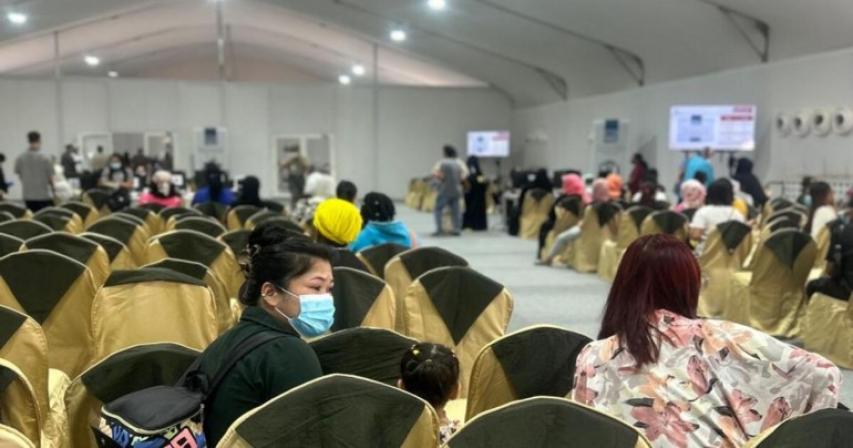UAE visa amnesty provides schooling, healthcare benefits

During the sixty-day grace period, paperwork-lacking foreigners can leave the country without having to cover overstay fines or departure charges.
A lot of families, living in the UAE without proper documents for a while now, are deciding to go back to their home countries. Why? They hope to give their children a brighter tomorrow. The visa amnesty program, that kicked off on the first of September, triggered this decision.
The belief is strong: returning to their native lands should enable them to put their kids in school. The visa amnesty scheme lets expats, who haven't documented correctly, leave the UAE without facing overstaying financial penalties and exit fees. If they secure the proper visa, getting back to the UAE is entirely feasible.
Consequently, several parents, albeit reluctantly, are seizing this chance to depart. Rachel Ashaba finds herself wrestling with such a challenging choice.
In the tumultuous period of the COVID-19 pandemic, Rachel found herself unemployed. As planes sat idle on runways and national lines shut, she grappled with many hard obstacles. Amidst these difficulties, a beacon of joy arrived; her first child, a girl named Paloma, was born.
Even though her papers ended, Rachel, a 30-year old from Uganda, stayed in the UAE. The reason? Life was tough back in her homeland. A new twist came when she got pregnant. No doctor. No hospital. She had her second baby in her very own room in 2022. She was happy to welcome her new baby, but fear shadowed her joy. Everything felt uncertain.
Rachel is about to depart from Dubai with her girls, heading for a heartfelt change. The three of them are moving to Uganda, to live with her dad. Moving there, she believes, will give her daughters the opportunity to enter school and experience the solid footing of proper documentation. Paloma, according to Rachel, can't wait to see her grandfather and their family back in Uganda.
"She's even requested a braid for her hair because we're going, picking purple – her top color," Rachel shared.
Nearly 20,000 requests flooded the visa amnesty scheme in just the first week in Dubai. As Rachel gets ready to depart, statistics show that 88% of expats who submitted applications in the scheme's initial week chose to stay in the UAE says the Federal Authority for Identity and Citizenship (ICP).
The Al Awir Service Centre encountered close to 2,400 individuals seeking amnesty.
Konchhxog Tamang Yanjan, a Nepali living in Dubai for seven years, is one of these individuals. His wife lost her job three years prior. Unable to obtain a visa for her, she became undocumented. After their first son was born, hospital bills grew. This hit their finances hard. Meanwhile, Yanjan found himself supporting his family on his own. This situation led him to consider a fresh start.
He expressed, "I don't want my son to live in such conditions. His own country would be better for him. That way, things could be easier for us all."
Sabreen Salim, hailing from Yemen, faced a comparable challenge. Pregnancy difficulties made her overextend her stay, racking up fines and making an exit from the country tough. Sabreen looks forward to a fresh start for her two kids, a 6-year-old and a young one less than a year old.
"My older child is 6; school should be his reality," she shared. "He's missed school for two months, it's on my conscience. I place his education above everything."
These families' challenges highlight the hard choices many unauthorized expats must confront. Nala (not her real name), an Indonesian mother with two kids, is thinking about going back. "The UAE is a place we adore, and my children feel the same. Yet, my aim is to provide them a decent life. I'm hoping to see them in school within the next two years," she emphasized. "Constant fear isn't the life I want. For the moment, going back for my children is my best path. They deserve a future that's solidly planted with legal papers and promising scenarios."






Comments